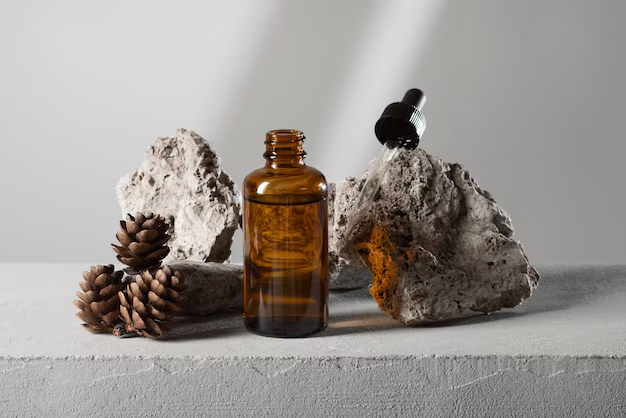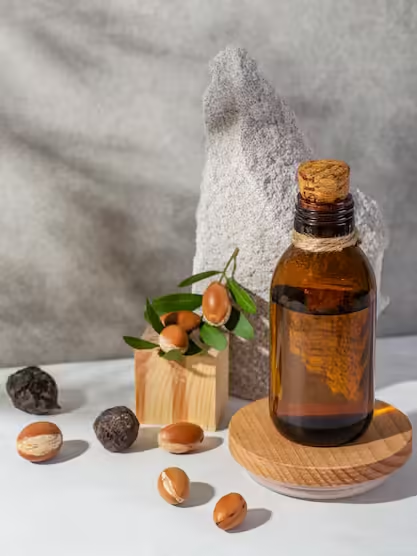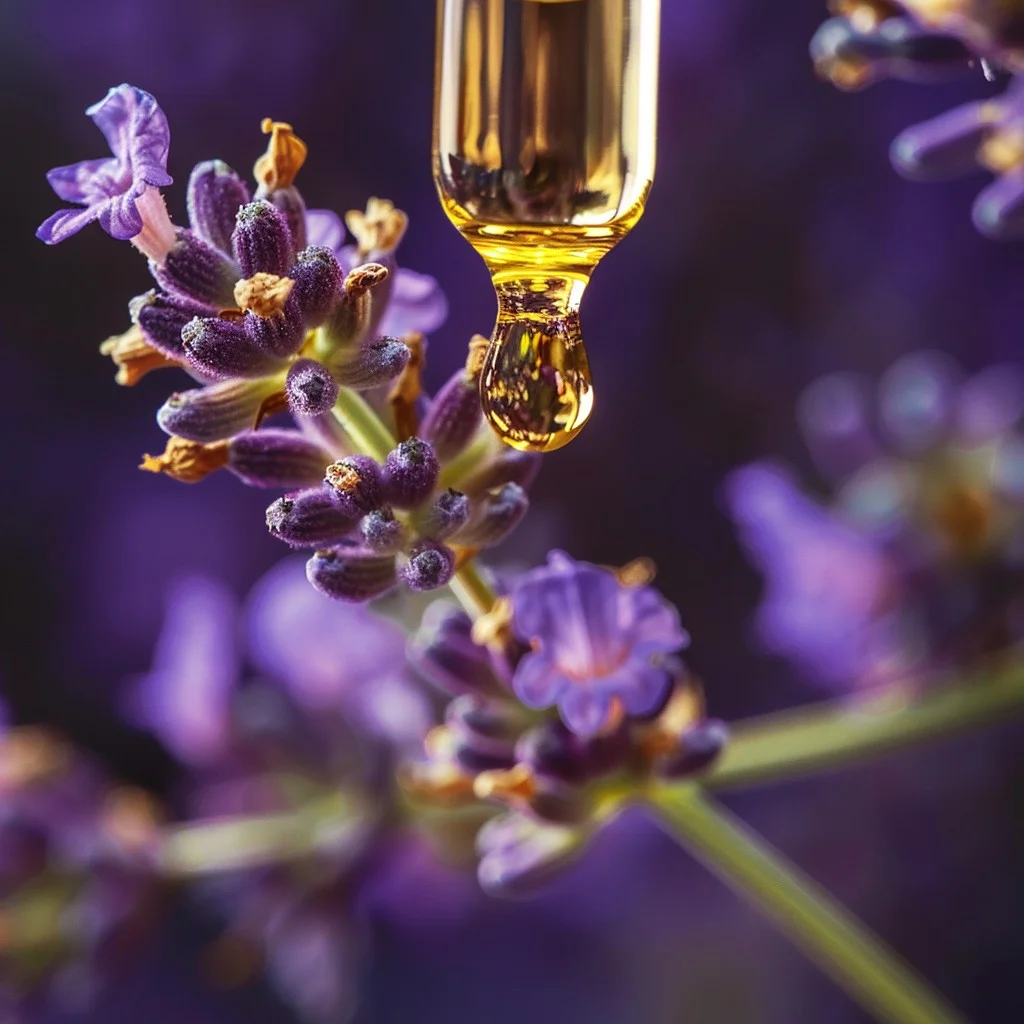Table of Contents
Sleep Well Essential Oil Blend
Essential oils have been used for centuries as natural remedies to promote relaxation, reduce stress, and improve sleep quality. With a growing awareness of the importance of sleep to overall health, many people are turning to essential oil blends as a holistic approach to achieving better rest.
Getting a good night’s sleep is essential for maintaining overall health and well-being, but many people struggle with insomnia, stress, or other issues that affect their sleep quality. Essential oils have gained popularity as a natural remedy for promoting relaxation and improving sleep. From calming the mind to reducing anxiety, essential oils can be an effective and soothing way to support better sleep. In this article, we’ll explore how essential oils work, which ones are best for sleep, and how to use them safely.
This guide provides detailed instructions on how to make and use an essential oil blend for sleep, designed to help you relax and prepare for a restful night’s sleep.
What Are Essential Oils?
Essential oils are highly concentrated plant extracts that capture the plant’s natural scent and beneficial properties. These oils are extracted from various parts of plants, including flowers, leaves, roots, and stems, using processes like distillation or cold pressing. Each essential oil has unique properties that can influence your mood, energy levels, or sense of relaxation.
When it comes to sleep, specific essential oils contain compounds that interact with the body’s nervous system, helping to calm the mind and create an environment conducive to restful sleep.
How Do Essential Oils Promote Better Sleep?
Essential oils can help improve sleep quality in several ways. Here are the key mechanisms by which they can support sleep:
1. Relaxation and Stress Relief
One of the primary ways essential oils help with sleep is by promoting relaxation. Many essential oils have calming properties that can help reduce stress and anxiety, both of which are common causes of insomnia. By reducing mental and physical tension, these oils create a peaceful environment that encourages restful sleep.
For instance, lavender essential oil is known for its ability to relax the nervous system, lower blood pressure, and reduce heart rate, making it easier to fall asleep.
2. Reducing Anxiety
Anxiety can often make it difficult to sleep, and essential oils can be beneficial in reducing anxious feelings. Oils like bergamot and chamomile have anxiolytic (anxiety-reducing) properties, which can help calm the mind and alleviate racing thoughts that keep you awake.
By activating the parasympathetic nervous system, which controls the body’s “rest and digest” response, these essential oils help create a sense of tranquility that is ideal for drifting into sleep.
3. Improving Sleep Duration and Quality
Some essential oils may not only help you fall asleep faster but also improve the overall quality and duration of your sleep. Oils like cedarwood and vetiver are known to promote deeper sleep by regulating your body’s natural sleep-wake cycle (circadian rhythm). This ensures that you spend more time in restorative sleep stages, leading to a more refreshed feeling in the morning.
4. Easing Respiratory Issues
Certain essential oils like eucalyptus and peppermint can help open up airways and improve breathing. If you suffer from snoring, nasal congestion, or respiratory issues that disrupt sleep, these oils can help clear your sinuses and allow for easier breathing throughout the night.
5. Creating a Sleep-Inducing Atmosphere
The aromatherapy aspect of essential oils is one of the most effective ways they help with sleep. Smelling a relaxing scent like lavender or sandalwood before bedtime can signal to your brain that it’s time to wind down, helping to establish a healthy bedtime routine. The soothing aromas can create a sense of comfort and relaxation, making it easier to transition into sleep.
Ingredients: Essential oils for better sleep
1. Lavender Essential Oil (10 drops)

Lavender is one of the most popular essential oils for promoting sleep. Its calming and sedative properties help reduce stress and anxiety, making it easier to fall asleep and stay asleep. Studies have shown that lavender oil can improve sleep quality and increase the amount of deep, slow-wave sleep.
Scent Profile: Sweet, floral, and slightly herbal.
2. Roman Chamomile Essential Oil (5 drops)

Properties: Roman Chamomile is known for its soothing, relaxing properties. It has traditionally been used to treat insomnia and anxiety. The oil contains compounds that interact with the brain’s neurotransmitters, helping to calm the mind and prepare the body for sleep.
Scent Profile: Warm, sweet and fruity with a hint of apple.
3. Cedarwood Essential Oil (5 drops)

Properties: Cedarwood has a warm, woody scent that is grounding and comforting. It has natural sedative properties, making it a great choice for those who struggle with anxiety or have a restless mind at bedtime. Cedarwood oil can also promote the release of serotonin, which the body converts into melatonin, the hormone responsible for regulating sleep.
Roman chamomile is known for its mild sedative effects, making it a great choice for those who struggle with insomnia or have trouble calming their mind before bed. It helps reduce anxiety and promotes a sense of inner peace, encouraging restful sleep.
Scent Profile: Rich, woody, and slightly sweet.
4. Bergamot Essential Oil(4 drops)
Properties: Bergamot is a citrus oil with a unique ability to both uplift and soothe. While most citrus oils are stimulants, bergamot has a calming effect on the nervous system, making it ideal for reducing anxiety and stress, which are barriers to sleep. This is especially useful for those who have trouble falling asleep due to racing thoughts or stress.
Unlike other citrus oils that are typically energizing, bergamot has relaxing properties. It helps lower heart rate and blood pressure, promoting relaxation and easing anxiety. Bergamot essential oil is particularly effective in creating a peaceful environment for sleep.
Scent Profile: Fresh, citrusy and slightly floral.
5. Frankincense Essential Oil (3 drops)

Properties: Frankincense is often used in meditation and relaxation practices because of its grounding and centering effects. It helps calm the mind and deepen breathing, creating a peaceful state conducive to sleep. Frankincense also has anti-inflammatory properties, which help relieve physical discomfort that can disrupt sleep.
Frankincense is another oil known for its grounding and balancing properties. It can help calm the mind, ease stress, and promote emotional balance, which can be beneficial for those who struggle with racing thoughts at bedtime.
Scent Profile: Warm, resinous, and slightly spicy.
6. Cedarwood
Cedarwood oil is known for its ability to stimulate melatonin production, the hormone responsible for regulating sleep. It has a grounding and calming effect, making it easier to relax and enjoy a longer, deeper sleep.
7. Vetiver
Vetiver is a deeply calming oil, often used to soothe anxiety and promote deep relaxation. Its earthy scent helps create a calming atmosphere, which can be particularly helpful for those who have trouble staying asleep or frequently wake up during the night.
How to make an essential oil blend for sleep.
Creating your own sleep well essential oil blend is a straightforward process that involves mixing the selected oils in the correct amounts. Here is a step-by-step guide:
1. Collect your belongings:
Essential Oils: Make sure you have a high quality pure essential oil to blend.
Dark Glass Bottle: A 10 ml amber or cobalt blue glass bottle with a dropper is perfect for storing the blend, as it protects the oils from light and preserves their potency. .
Eyedropper: To measure the exact number of drops.
2. Mix the oil:
- Start by adding 10 drops of lavender essential oil to a glass bottle.
- Next, add 5 drops of Roman Chamomile essential oil.
- Follow with 5 drops of cedar wood essential oil.
- Add 4 drops of bergamot essential oil.
- Finally, add 3 drops of frankincense essential oil.
- Close the bottle tightly and swirl it gently to mix the oil. Avoid vigorous stirring as this can introduce air bubbles and reduce the effectiveness of the mixture.
Use essential oil blends to improve your sleep
There are several ways to use essential oil blends to promote better sleep. Each method offers different benefits depending on your personal preferences and needs.
1. Spreading the compound:
How to use: Add 4-6 drops of essential oil blend to your dye. fuser with water, and let it run in your bedroom for about 30 minutes before going to bed. A light diffusion of the oil in the air will create a calming environment, preparing your body and mind for sleep.
Benefits: Inhalation is one of the most effective ways to experience the benefits of essential oils. Fragrance molecules go directly to the brain’s limbic system, which controls emotions and relaxation.
How to Use Essential Oils for Sleep
There are several ways to incorporate essential oils into your nightly routine to improve sleep quality. Here are some of the most effective methods:
1. Diffusing Essential Oils
Using an essential oil diffuser in your bedroom is one of the most common and effective ways to use essential oils for sleep. Add a few drops of your chosen essential oil to the diffuser and let it run for about 30 minutes before bed. The calming scent will fill the room, helping you to relax and drift off to sleep.
2. Topical Application
You can apply essential oils directly to your skin, but they should always be diluted with a carrier oil like coconut or almond oil to avoid irritation. Apply the diluted oil to pulse points such as your wrists, temples, or the soles of your feet. This allows the oil’s calming effects to absorb into your bloodstream and promote relaxation.
3. Aromatherapy Sprays
Another way to use essential oils for sleep is by making an aromatherapy spray. Mix a few drops of essential oil with water in a spray bottle and lightly mist your pillow, sheets, or bedroom before bed. The gentle scent will create a soothing atmosphere for restful sleep.
4. Bathing with Essential Oils
Taking a warm bath with a few drops of essential oil before bed can be a great way to relax both your mind and body. Oils like lavender or chamomile can help soothe tension and prepare you for a good night’s sleep.
5. Subject Application:
How to make: Dilute 10 drops of essential oil blend in 1 ounce (30 ml) of a carrier oil, such as jojoba oil, sweet almond oil, or coconut oil. Mix well and store in a small glass bottle.
How to use: Apply a small amount of the oil mixture to the pulse points (wrist, temples, behind the ears) or massage into the soles of your feet before going to bed. You can also apply it on the back of your neck and shoulders to relieve tension.
Benefits:Topical application allows the oil to be absorbed into the bloodstream through the skin, providing local stress relief and promoting overall relaxation.
Tips to Maximize the Effectiveness of Blending Your Sleep Well
1.Consistency is key: Use an essential oil blend as part of your nightly routine. Over time, your body will associate the scent with sleep, making it easier to relax and fall asleep faster.
2.Create a relaxing sleep environment:Enhance the effects of your essential oil blend by creating a relaxing sleep environment. Dim the lights, play soft music, and remove any distractions from your bedroom.
3. Pair with other sleep aids: Consider combining essential oil blends with other sleep aids, such as herbal tea, meditation, or a warm bath, to create a comprehensive sleep routine.
4. Test for Allergies: Always do a patch test before using essential oils topically to make sure you are not allergic. Apply a small amount of the diluted mixture to a small area of skin and wait 24 hours to check for any signs of irritation.
5. Proper Storage: Store your essential oil blend in a cool, dark place to maintain the oil’s potency and effectiveness. Avoid exposure to heat and direct sunlight, as these can degrade the oil over time.
FAQ: How Do Essential Oils Help With Sleep?
1. What are essential oils?
Essential oils are concentrated plant extracts made from flowers, leaves, roots, and other parts of plants. They capture the plant’s natural scent and therapeutic properties and are commonly used in aromatherapy for relaxation, stress relief, and sleep.
2. How do essential oils help with sleep?
Essential oils help with sleep by promoting relaxation, reducing stress and anxiety, easing respiratory issues, and creating a calming environment through their aromatherapy effects. Some oils, like lavender and chamomile, also have mild sedative properties that help calm the nervous system.
3. What are the best essential oils for sleep?
- Some of the top essential oils for improving sleep include:
- Lavender: Calms the nervous system and promotes relaxation.
- Roman Chamomile: Reduces anxiety and promotes peaceful sleep.
- Bergamot: Lowers heart rate and eases tension.
- Cedarwood: Stimulates melatonin production and promotes deeper sleep.
- Vetiver: Calms the mind and helps with deep sleep.
- Frankincense: Reduces stress and balances emotions.
4. How do I use essential oils for better sleep?
You can use essential oils for sleep by:
- Diffusing them in your bedroom using an essential oil diffuser.
- Applying topically to pulse points (wrist, temples, or feet) after diluting with a carrier oil.
- Making an aromatherapy spray for pillows and sheets.
- Adding a few drops to a bath before bed for a calming effect.
5. Can essential oils improve sleep quality?
Yes, certain essential oils like cedarwood and vetiver can improve the overall quality and duration of sleep by promoting deep and restorative sleep. They help regulate the body’s sleep-wake cycle and support longer periods of uninterrupted rest.
6. Are essential oils safe to use for sleep?
Essential oils are generally safe when used properly, but it’s important to follow these guidelines:
- Dilute essential oils with a carrier oil before applying them to your skin to avoid irritation.
- Avoid ingesting essential oils unless instructed by a healthcare professional.
- Conduct a patch test before using to ensure you’re not allergic.
- Consult a doctor if you’re pregnant, nursing, or have a medical condition.
7. Can I use essential oils if I have respiratory issues?
Yes, essential oils like eucalyptus and peppermint can help relieve respiratory issues such as nasal congestion, which can disrupt sleep. They open up the airways, making it easier to breathe during the night.
8. How do essential oils affect anxiety and stress before sleep?
Certain essential oils, such as lavender, bergamot, and chamomile, have anxiolytic properties that help reduce anxiety and stress. By activating the parasympathetic nervous system, they promote relaxation and calm the mind, making it easier to fall asleep.
9. Can essential oils help with insomnia?
Yes, essential oils, especially lavender and Roman chamomile, can be effective for managing insomnia. Their calming and sedative effects help ease the mind and body into sleep, reducing the time it takes to fall asleep and improving sleep quality.
10. How often can I use essential oils for sleep?
You can use essential oils daily as part of your nighttime routine. Diffusing oils, applying them topically, or using a pillow spray before bed can become part of your regular wind-down routine to help promote consistent and restful sleep.
11. Can children use essential oils for sleep?
Some essential oils, like lavender and chamomile, are safe for children when properly diluted. However, always consult a pediatrician before using essential oils on or around children, as some oils may not be appropriate for young children.
12. How quickly do essential oils work for sleep?
The calming effects of essential oils can take effect within minutes, especially when inhaled through a diffuser or applied topically. Most people experience a sense of relaxation shortly after exposure, making it easier to fall asleep.
Conclusion
Essential oils offer a natural, non-invasive way to improve sleep quality. Whether you’re dealing with insomnia, stress, or just want to enhance your bedtime routine, using essential oils can help create a calming environment and support a more restful night’s sleep. By choosing the right oils and using them safely, you can enjoy the benefits of aromatherapy and drift off to sleep more easily each night.
A good sleep essential oil blend can be a powerful tool in your quest for better sleep. By combining the calming and soothing properties of lavender, Roman chamomile, cedarwood, bergamot, and frankincense, this blend can help calm the mind, relax the body, and prepare for a restful night’s sleep. Whether you choose to diffuse the blend, use it as a pillow spray, or apply it topically, incorporating this blend into your night time routine can significantly improve your sleep quality and overall health. Can be improved. Read More about sleep


Your article helped me a lot, is there any more related content? Thanks!
Can you be more specific about the content of your article? After reading it, I still have some doubts. Hope you can help me.